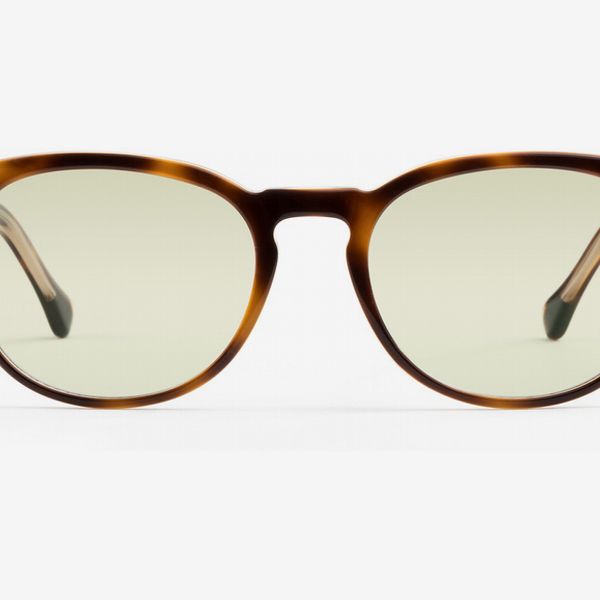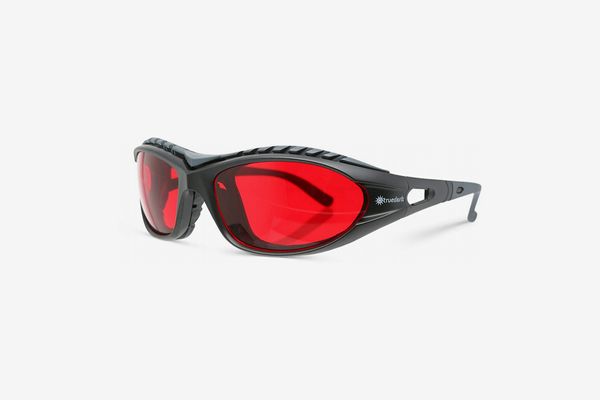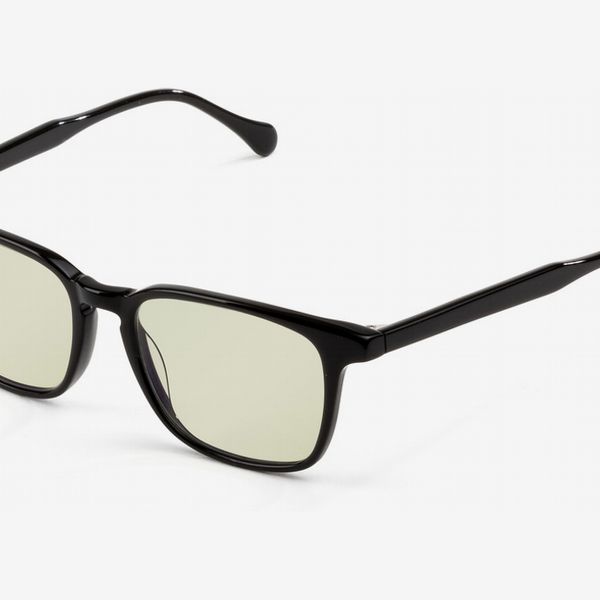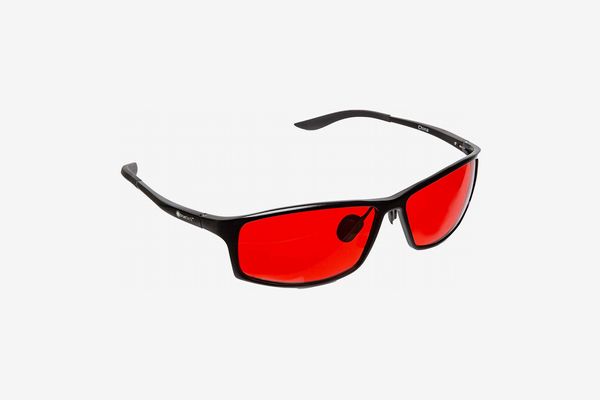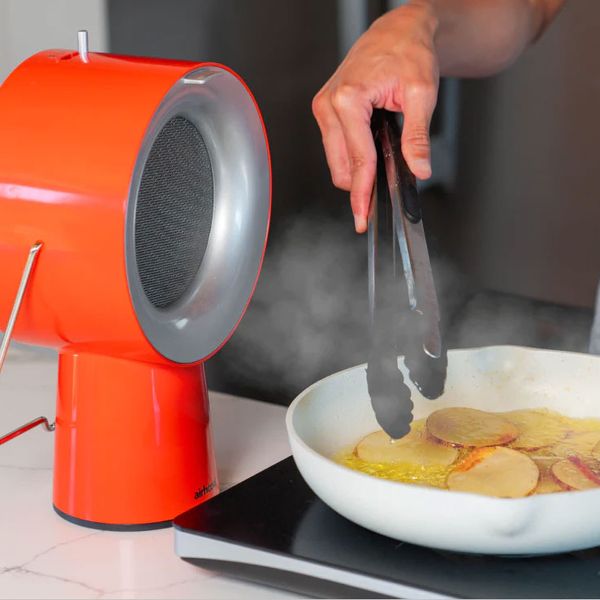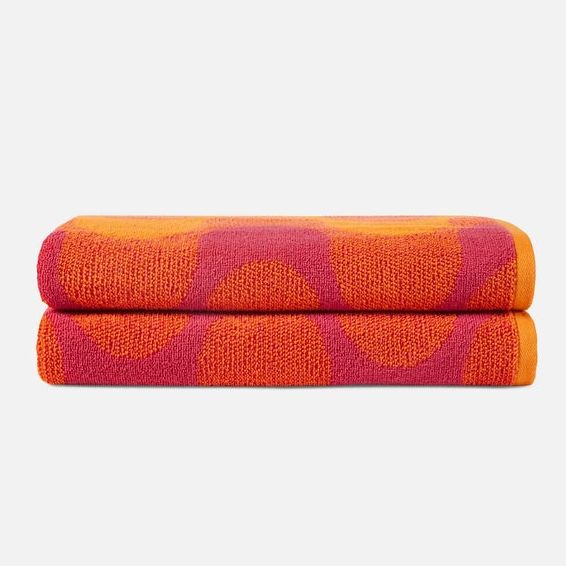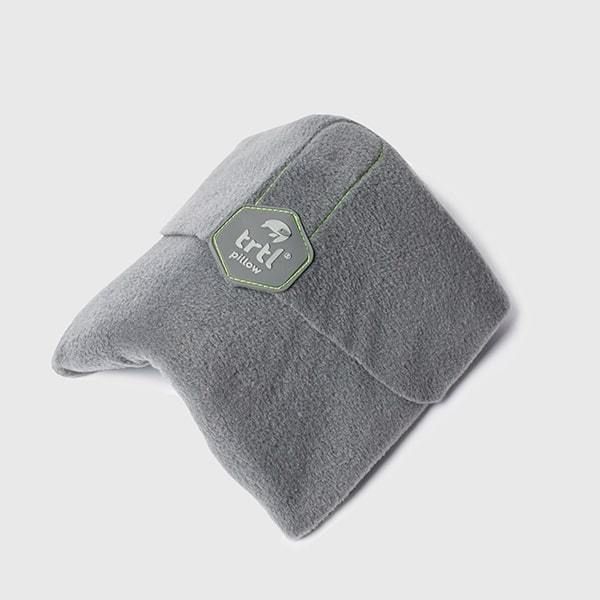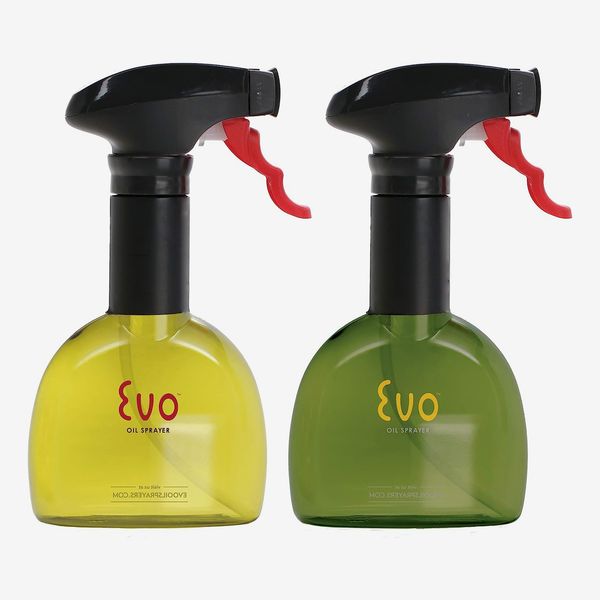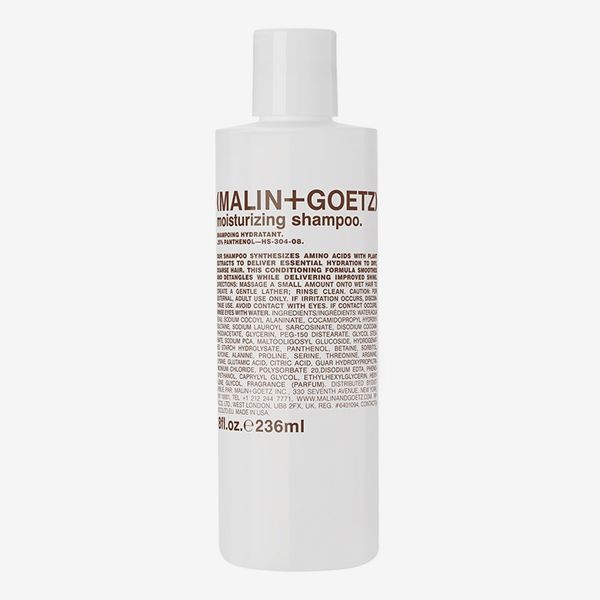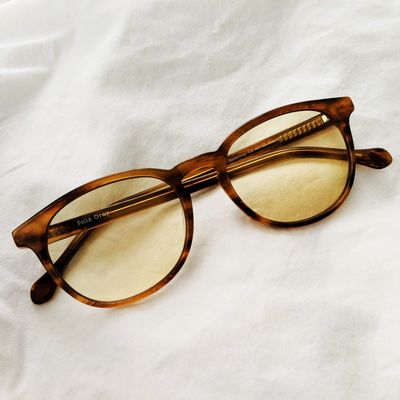
If you get headaches at work from staring at your computer for too long, wearing blue-light-blocking glasses isn’t going to help much. But there is evidence that exposure to blue light after dark, from screens and monitors, can disrupt your natural sleep patterns and make it harder to fall asleep. And though you could simply give up your devices, you could also put on a pair of blue-light-blocking glasses, which would let you scroll through Instagram and play video games at night without experiencing the stimulating effects of blue-enriched screen light.
At least, that is, according to Felix Gray. The eyewear company, which helped popularize blue-light-blocking computer glasses as an office accessory, has a new line of glasses specifically designed to help wearers fall asleep more easily without burdening them with the task of giving up cell phones or laptops in bed. The glasses supposedly let you do whatever you want in the precious hours before bedtime — scroll through social media, watch YouTube — without the screen-time keeping you up.
The company’s sleep glasses have the same stylish acetate frames as their original computer glasses, but while the daytime glasses filter out 50 percent of the blue light on the spectrum, the Felix Gray nonprescription sleep glasses block out 62 percent of all blue light. It doesn’t seem like a major difference on paper, but the lenses of the sleep glasses have a noticeably stronger yellow tint than the daytime ones. And really, the overall effect when you put them on isn’t too distorting. Everything just looks a little less bright, like someone dialed down the lights.
Felix Gray isn’t the first to dip their toe into the world of sleep-specific glasses, though. A more intense version comes from TrueDark, a brand founded by the same guy who created the Bulletproof Diet. And though they make daytime-friendly blue-light-blocking glasses with slightly-amber-tinted lenses, similar to those from Felix Gray, their sleep-specific TrueDark Twilight glasses come with red lenses that claim to block out 90 percent of all blue and green light. The result is some intense blue-light-blocking. When I held these glasses up to multicolored Christmas lights, the blue and green flickers all but disappeared behind the red lenses. The flip side is that natural color is distorted completely, and everything takes on a red tint.
But even though these glasses look very different, their claims and directions for use are fairly similar. Put on these sleep-specific blue-light-blocking glasses on 30 minutes to 2 hours before your scheduled bedtime, then go about your business as usual, even if that business includes working on your laptop or scrolling through your phone. In its literature, TrueDark claims its Twilights will help “your sleep hormones shift into night mode,” even as you’re getting blue-light exposure from screens like your tablet or TV; the glasses will ultimately help you “fall asleep quickly and sleep more deeply.” Felix Gray makes similar claims, calling their glasses a “natural sleep aid, helping you fall and stay asleep,” even after you’ve scrolled through your entire Facebook feed.
Whether these sleep glasses are as much of a miracle cure as they claim to be — or even if their effects are much different from other adjustments you can make to your environment, like turning on Night Shift on your laptop or phone, which also suppresses substantial amounts of blue light — is up for debate. According to Jamie Zeitzer, associate professor of psychiatry and behavioral sciences at the Stanford Center for Sleep Sciences and Medicine, “Most of the negative impact of electronics on sleep and on your circadian clock is not due to the light. It’s due to the fact that these things are engineered to keep you awake and entertained and engaged in what you’re doing for an extended period of time.” So blocking the blue light from your devices isn’t going to help you fall asleep more easily if you’re still fired up by your uncle’s annoying Tweet or engrossed in Fortnite. “If you’re wearing amber glasses and what you’re doing is keeping you awake late,” says Zeitzer, “it doesn’t matter.”
And after using the sleep glasses from Felix Gray for the last month and a half, after they were sent to me for testing by the brand, I found that they weren’t exactly the cure-all “natural sleep aid” they claim to be. I stayed up long past my bedtime, engrossed in The Assassination of Gianni Versace: American Crime Story, with these sleep glasses hanging off my nose. Sure, the screen had a slight yellow tint, so I guess some amount of the blue light was blocked, but no glasses could prevent me from watching three episodes in a row. And when it finally came time to close my laptop, my mind was still racing and I struggled to drift off to sleep. It seemed like the benefits of cutting my exposure to blue light by over 60 percent before bed were outweighed by the stimulation of what I was doing.
The red-tinted glasses from TrueDark were slightly better at helping me fall asleep in a timely manner, but I don’t know if that’s because they blocked more blue light. Mostly, I got bored. While wearing those glasses, which were also sent to me by the brand for testing, every image on Instagram was effectively served to me in black-and-white, and everything lost so much definition and detail behind the red tint that I couldn’t really stay engaged. Those green palm trees and blue skies became blobs.
The flip side of that, however, is that I was less compelled to use my devices. They were simply less engaging to look at, and as a result, I fell asleep a little easier — though it’s hard for me to say whether that’s because the blue-light was more thoroughly suppressed or because I spent less time on my devices before bed.
That’s when these glasses might be helpful, notes Zeitzer — as a cue to start getting ready for sleep, much in the same way that sleep hygiene experts tell you not to do anything in bed but sleep (if only to create a psychological association between the bed and slumber). “I think there can be a potent psychological effect, either when you put on the glasses or you change the color of your screen,” he says, as a sign to your body that you’re going to start the process of getting ready for sleep. And if that’s the case, that’s great. “It’s just not a direct biological function to light,” he adds.
The glasses may not have been technically more effective at putting me to sleep than blue-light-free light bulbs or a melatonin pill or even the Night Shift and grayscale functions on my laptop and phone, but over the test period, I found that putting on the Felix Gray sleep glasses became as much a part of my nighttime routine as washing my face or putting on pajamas. It acted as a physical reminder that it was time for bed (not a late-night binge of a Ted Bundy documentary). The TrueDark Twilights took the distortion to the next level, and I think they’d be great for someone trying to wean themselves off a habit of late-night computer use.
So if you’re looking for a subtle way to change your environment that might help you sleep a little easier at night, this new category of sleep glasses is an excellent option. But ultimately, if the activity you’re engaged in before bed is causing you stress or getting you hyped up, strapping on a pair of glasses is not going to help you fall asleep easier, no matter how much blue light they block.
The Strategist is designed to surface the most useful, expert recommendations for things to buy across the vast e-commerce landscape. Some of our latest conquests include the best acne treatments, rolling luggage, pillows for side sleepers, natural anxiety remedies, and bath towels. We update links when possible, but note that deals can expire and all prices are subject to change.
Every editorial product is independently selected. If you buy something through our links, New York may earn an affiliate commission.

